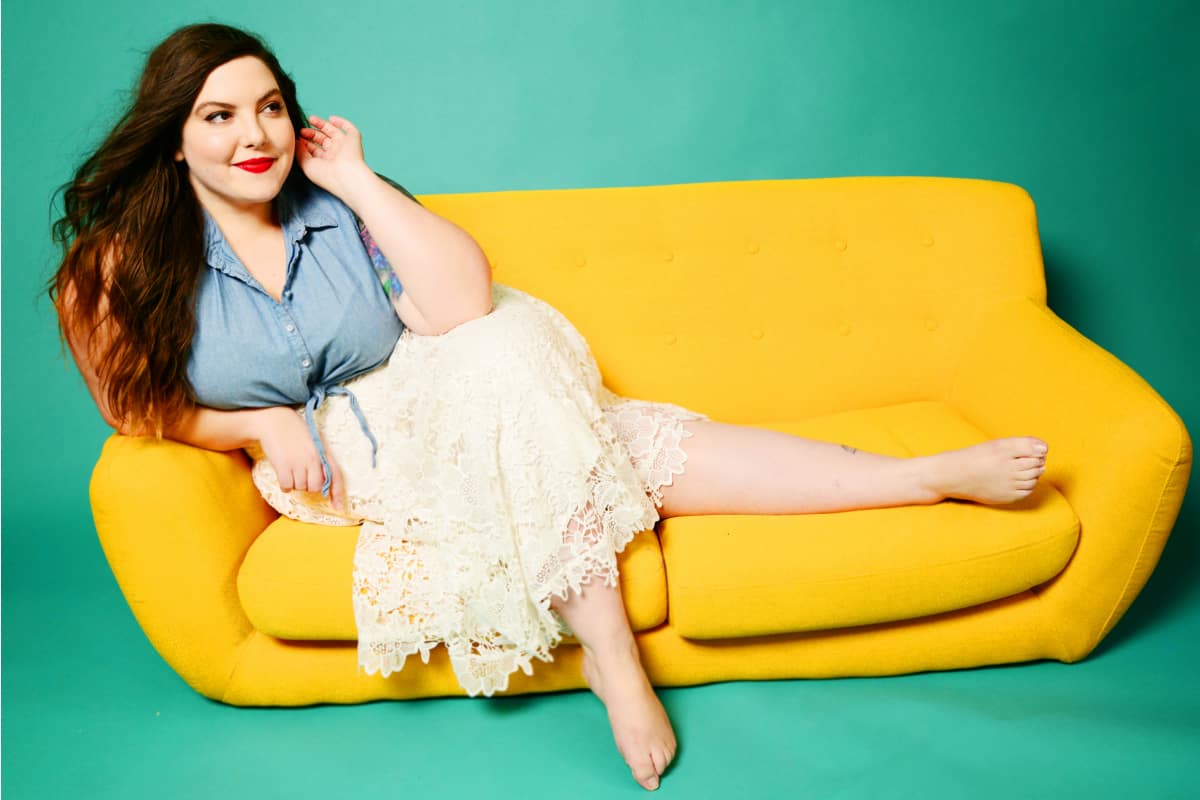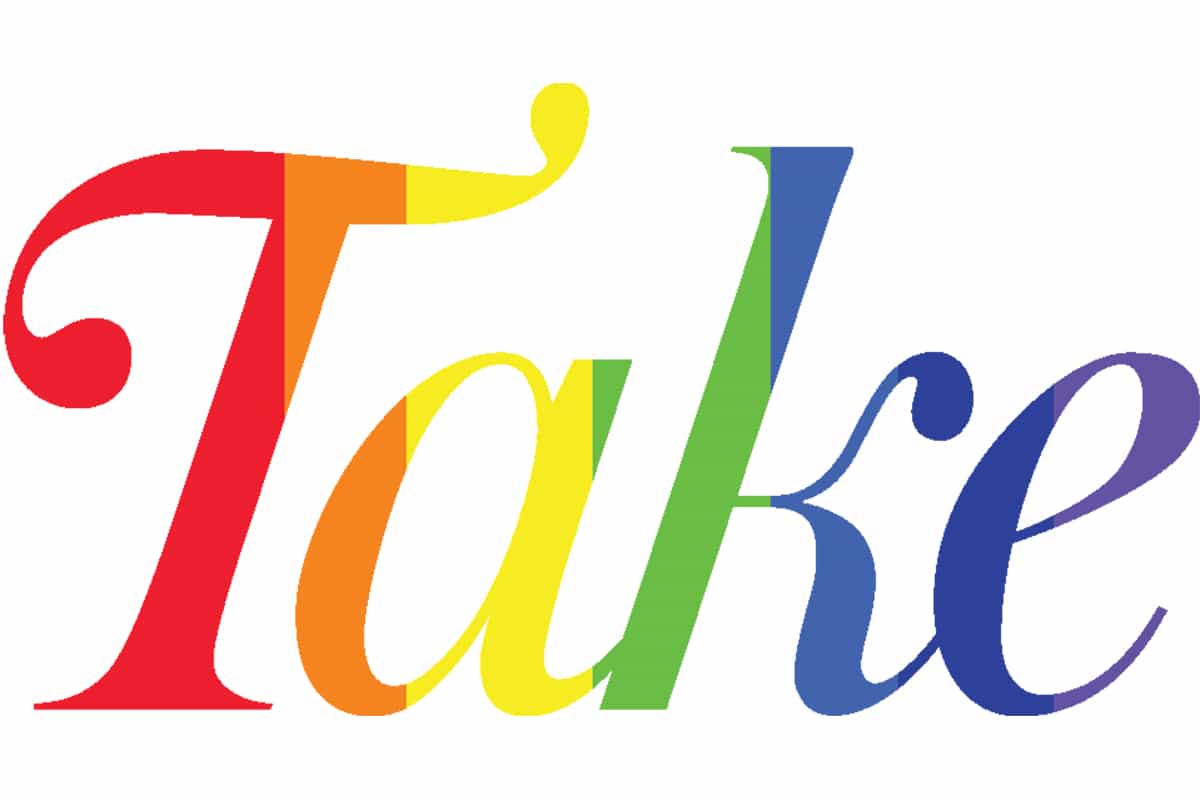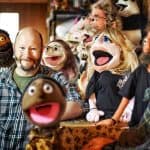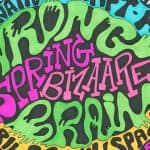Amherst singer/songwriter Mary Lambert wants you to know she is unapologetically fat, femme, and gay as hell.
As I make my way to Mary Lambert’s house in Amherst, I can remember the forming bonds of friendship between us almost a decade before. We were in Seattle, serving brunch at a restaurant on a summer morning. We moved slowly and drank coffee, sleepily waiting for the Dyke March to round the corner from downtown to Capitol Hill. It was practically gay Christmas on that hot Sunday in June 2008, aka Seattle Pride, and we were two impatient kids waiting to celebrate. At first, we only felt the bass, the deep rumbling of house music shuddering the ground and the windows. Then came the crescendo of exuberant voices yelling into the morning light. Before we could even see the swell of rainbow-and-glitter-covered bodies flood the street, I heard Lambert squeal and run outside in excitement. We both stood outside, ignoring the work we had to do, and watched the parade. It was a beautiful time to be young and gay and alive in the city.
It would be over a year before Lambert would achieve success as an outspoken LGBTQ singer/songwriter and win a Grammy for her collaboration on “Same Love” with Macklemore and Ryan Lewis. Neither of us could have imagined the whirlwind of success and struggle Lambert has faced since then, or the thousands of hearts she has emboldened with her tender and efficacious style as a musician, poet, and advocate.
Rounding the bend of a quiet back road, I find Lambert’s house tucked between farms and open land—a far cry from the bustle of Seattle. Lambert originally came to Massachusetts in 2014 to record with musician Michelle Chamuel; much to their surprise, they fell in love, and Lambert moved to the Happy Valley. Their house is flooded with light, local art work, instruments, and various homemaker projects that Lambert and Chamuel have completed, including a downstairs recording studio. Lambert laughs as she shows me the hardwood floors she installed in the kitchen that are slightly uneven in the corners. “I’m trying!” she exclaims. “Can’t win them all.”
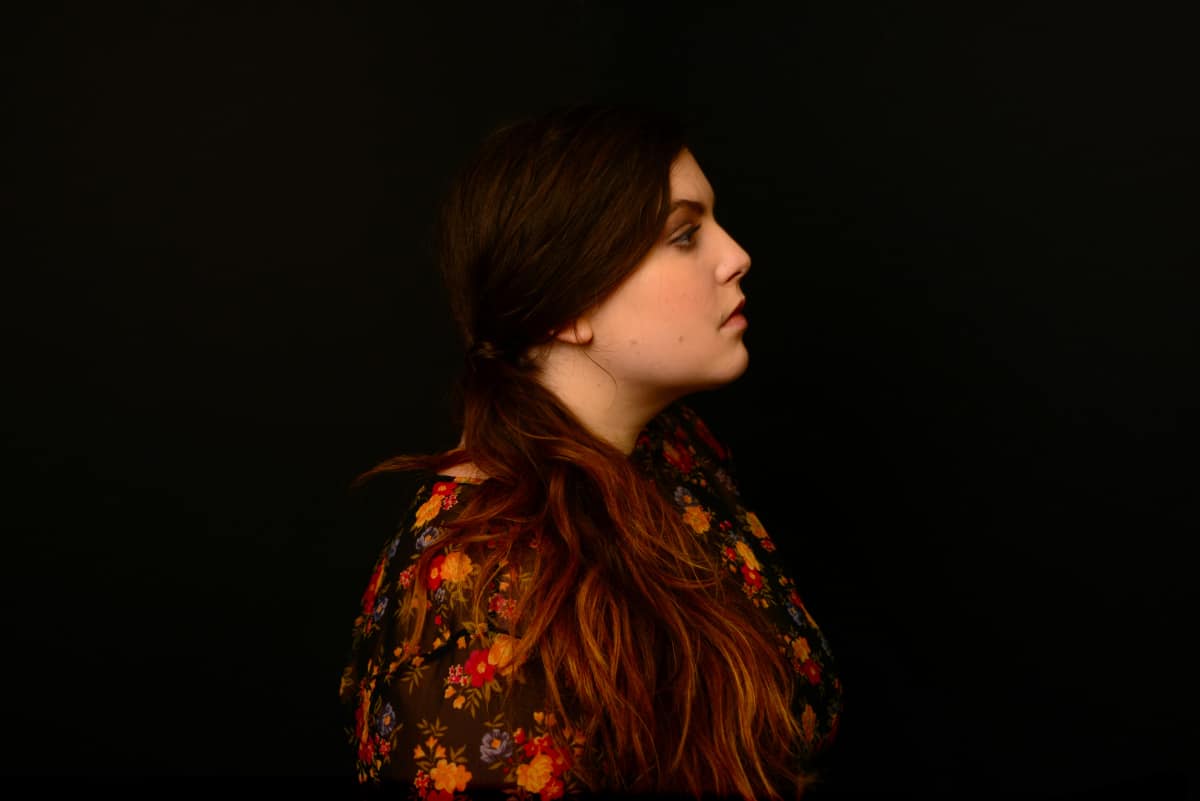
Photo by Chad Batka for The New York Times | Photo courtesy the artist
Lambert’s career has unfurled like a fairy tale. Small-town girl moves to the big city to pursue music at an arts school. Doesn’t make much money. Spends most of her time making music, writing poetry, waitressing, recording. Is asked to record a hook on a song about gay love with a local musician. And then, a year later, is winning a Grammy, performing next to Madonna and traveling the United States on a whirlwind tour. “It’s crazy,” she says, sipping coffee. “You know, I realized that I had been working so hard for that moment. I needed music and I always have, you know, to work through a lot of my trauma and depression that I’ve experienced. When it was happening, it didn’t feel real. But now, I realize that I had worked really hard and continue to do so, to be the best musician I can, and to be honest about my music and myself. I want to talk about being bipolar. I want to talk about body shame and being gay, and puppies, and being gay,” she laughs.
Lambert is often recognized for her confessional approach to music, which ranges from upbeat and off-kilter pop songs to robust and melancholy ballads that have been compared to Adele and Regina Spektor. Her songs also incorporate spoken word poetry, a fusion that makes her multifaceted style hard to pin down as pop music or one of the traditional female singer/songwriter genres. After she won the Grammy, Lambert was signed to Capitol Records, which she later left. “I ended up leaving on good terms,” she explains, “but it was hard to ‘sell’ me. I don’t want to just make traditional pop music, even though I love it. I want to make music that is also poetry, and music that can change based on what I am feeling, or inspired by. On a major label, you know. . .Katy Perry is on Capitol Records, and Katy Perry is a sellable pop singer.”
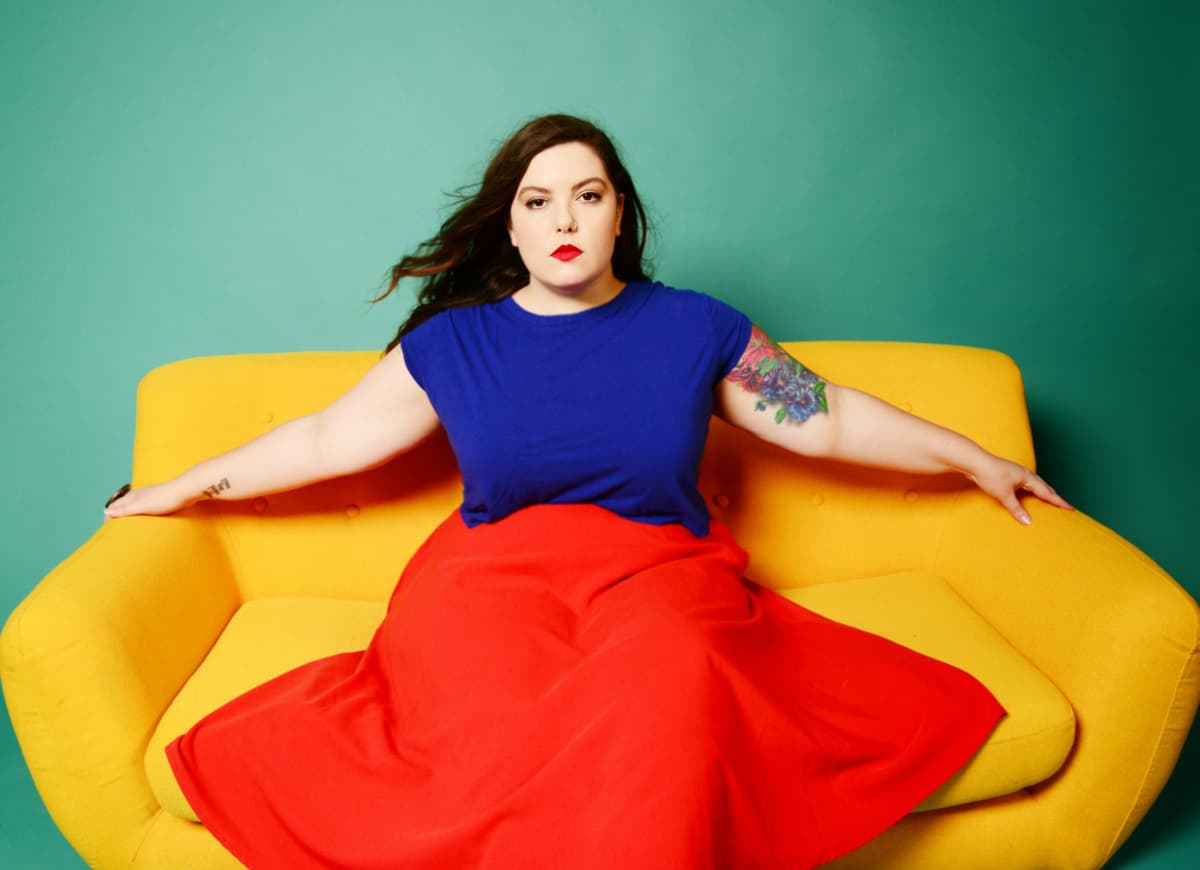
Photo by Shervin Lainez | Photo courtesy the artist
Before signing with Capitol, Lambert released her debut EP, Letters Don’t Talk, a beautifully layered collection of songs that rumble through the heart with the immensity of love and heartbreak. She also released a book of poetry, 500 Tips for Fat Girls, in 2013, along with her Capitol Records album, Welcome to the Age of My Body, which includes a more playful exploration of Lambert’s love for pop music and fun, upbeat love songs about gay crushes and being unapologetically fat, femme, and bipolar. She is lovingly known for her intense adoration for fans, and turning her shows into intimate bedroom confessionals where fans are allowed and even encouraged to cry. “I love being at shows,” she says, “because it’s not just about me or my feelings, or me crying like always. I feel like I have made music to make people feel seen. To feel less alone. To feel beautiful. To not feel afraid. To laugh and to be ridiculous, you know. I can’t imagine not being able to do that. And in a way, I am doing that because it is what I needed; and I think it has the capacity to make a difference.”
Lambert and Chamuel have been collaborating on Lambert’s upcoming album, Bold, which will be released in April. Since leaving Capitol Records, she has been a self-supporting, independent artist, even launching a Kickstarter page asking fans to help her to continue to make music. She’s raised 50,000—more than $30,000 over her goal. The best part: Those who have donated are rewarded with a personal thank you that ranges from a signed album to a fancy dinner with Lambert in New York City, Los Angeles, or Boston. “I can’t believe how much love I have received since my Kickstarter,” she says. “It’s still going! It’s been validating because I know people care about what I am doing; I want to make music that makes me feel alive. I feel so lucky,” she adds. “I wake up and I am like, What the hell is my life? It’s just magic.”

